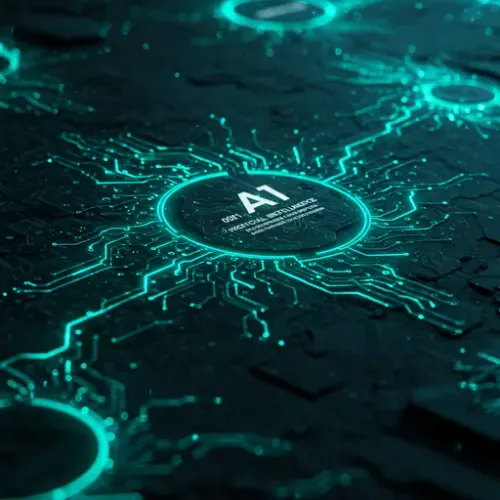Q&A: Is artificial intelligence friend or foe?

The AI Report
Daily AI, ML, LLM and agents news
Navigating the AI Revolution: Friend, Foe, or Both?
Artificial intelligence, often perceived as a futuristic concept, has a history far richer than many realize. From the humble beginnings of email spam filters and autocorrect to IBM's Deep Blue defeating Garry Kasparov in chess in 1997, AI has been quietly evolving. Its formal birth as a field dates back to a pivotal Dartmouth College conference in 1956. However, it was the 2022 release of ChatGPT, a generative AI tool, that truly propelled AI into the global spotlight, making its capabilities accessible and astonishingly immediate for millions.
ChatGPT and similar generative AI tools can craft presentation talking points, write songs, brainstorm ideas, and even help plan your dinner menus. But as these powerful tools become integrated into our daily lives, a critical question arises: How can we harness their potential responsibly? We delve into this with insights from Mona Slone, an assistant professor of data science and media studies at the University of Virginia, to understand the true nature of generative AI and how to navigate its burgeoning landscape.
Understanding Generative AI: More Than a Super Search Engine
Generative AI operates on a sophisticated deep learning technique. It processes vast amounts of raw data, like the entire internet, to grasp the inherent logic and structure of human language. This allows it to infer what we might mean when we pose a question or prompt it. Crucially, generative AI produces "statistically probable outputs," meaning it generates responses based on patterns it has learned, rather than truly understanding meaning or possessing absolute factual knowledge.
This fundamental difference sets it apart from traditional search engines like Google. While Google aims for precise information retrieval by matching keywords, AI interprets your input, potentially expanding or subtly altering your query. For instance, asking for "the best restaurant in Charlottesville for a Thursday night dinner with my best friends" might prompt AI to consider alternative cities or days, based on statistical likelihoods, rather than sticking strictly to your exact terms. It's an interpretative process, not a direct information lookup.
Practical Power & The Verification Imperative
The applications for generative AI are remarkably diverse. Beyond creative writing and brainstorming, it's adept at summarizing lengthy texts, generating promotional materials, assisting with garden planning, and even drafting speeches. For students, it can serve as a valuable learning aid, helping them grasp complex concepts and formulate questions, fostering deeper understanding.
However, with great power comes great responsibility. A common skepticism rightly asks: How can we trust what AI tells us? Is it verified information? Professor Slone's answer is unequivocal: "They're right." We must understand that AI does not dispense "absolute truth." It is our responsibility as users to verify the information AI provides. There's a significant risk of slipping into a "sloppy use" of these systems if we fail to cross-reference and confirm AI-generated content.
The Unseen Cost: AI's Environmental Footprint
One aspect of AI often overlooked is its substantial energy consumption. Interacting with an AI model requires it to be "switched on," demanding immense computational energy. Even more significantly, the initial creation and training of these complex models consume enormous amounts of power. This energy hunger isn't just an abstract technicality; it has tangible environmental impacts and can drive up local energy prices for communities. As Slone notes, "We don’t really talk about that because we still imagine AI to be this quasi-magical thing that appears wherever you look."
Towards Responsible AI Usage
Given its power and its hidden costs, how should we approach AI responsibly? A key principle, according to Professor Slone, is to use AI "only when it absolutely has to happen." If a quick Google search or another traditional information retrieval system can provide the answer, it's often more efficient and environmentally preferable to use that instead of a generative AI tool.
Furthermore, as sustainability-aware consumers, we should start demanding transparency from AI vendors regarding their models' energy usage. This conversation about the environmental impact and ethical sourcing of AI is still nascent, but it's one we need to engage in actively. Choosing vendors who disclose and prioritize sustainable practices could become a new standard for responsible AI consumption.
Embracing AI Mindfully
Artificial intelligence is a transformative technology, offering unparalleled capabilities for creativity, efficiency, and learning. Yet, its responsible integration into our lives hinges on understanding its limitations, acknowledging its environmental footprint, and committing to vigilant verification of its outputs. By doing so, we can ensure that AI truly serves as a valuable tool, rather than an unexamined force.

The AI Report
Author bio: Daily AI, ML, LLM and agents news
